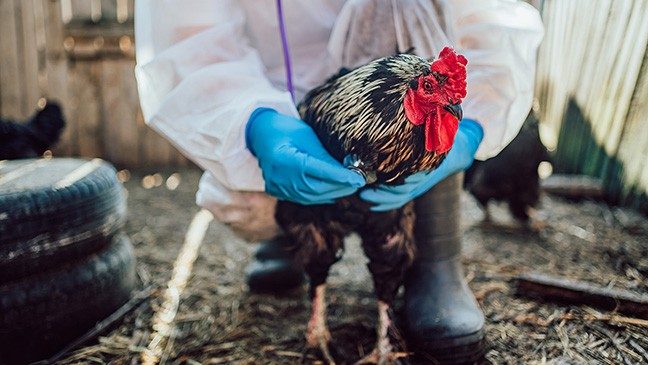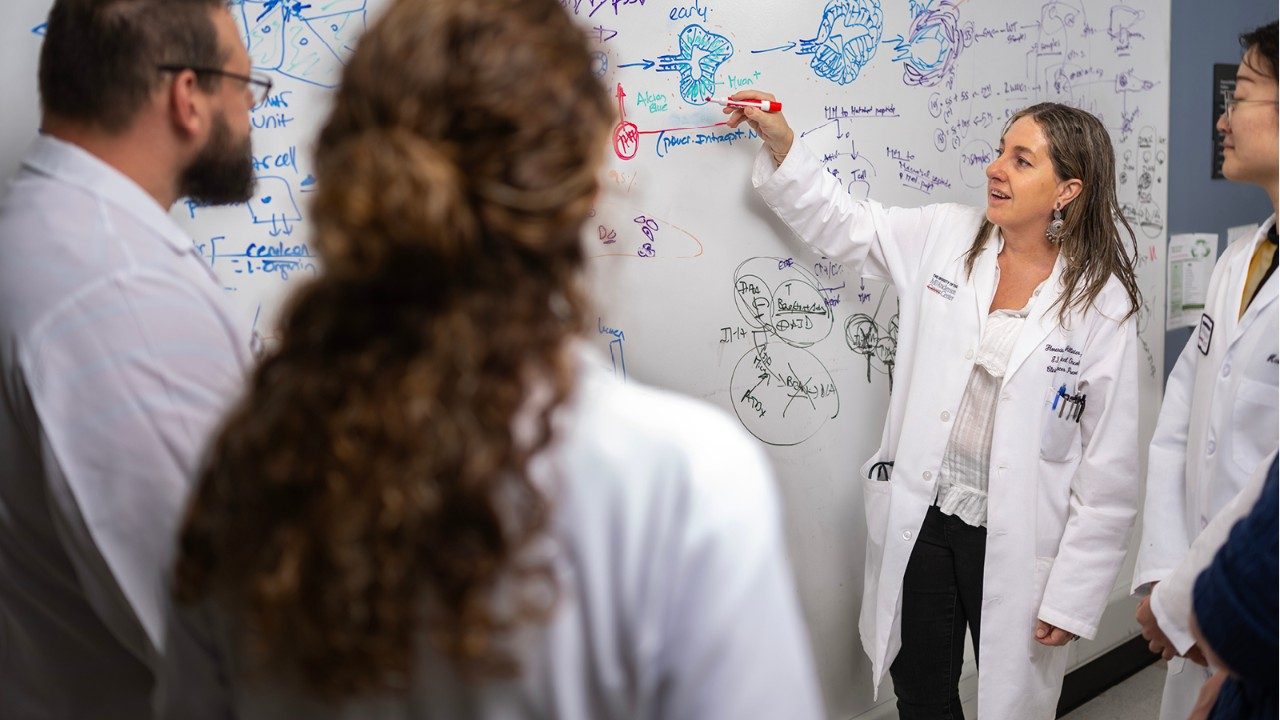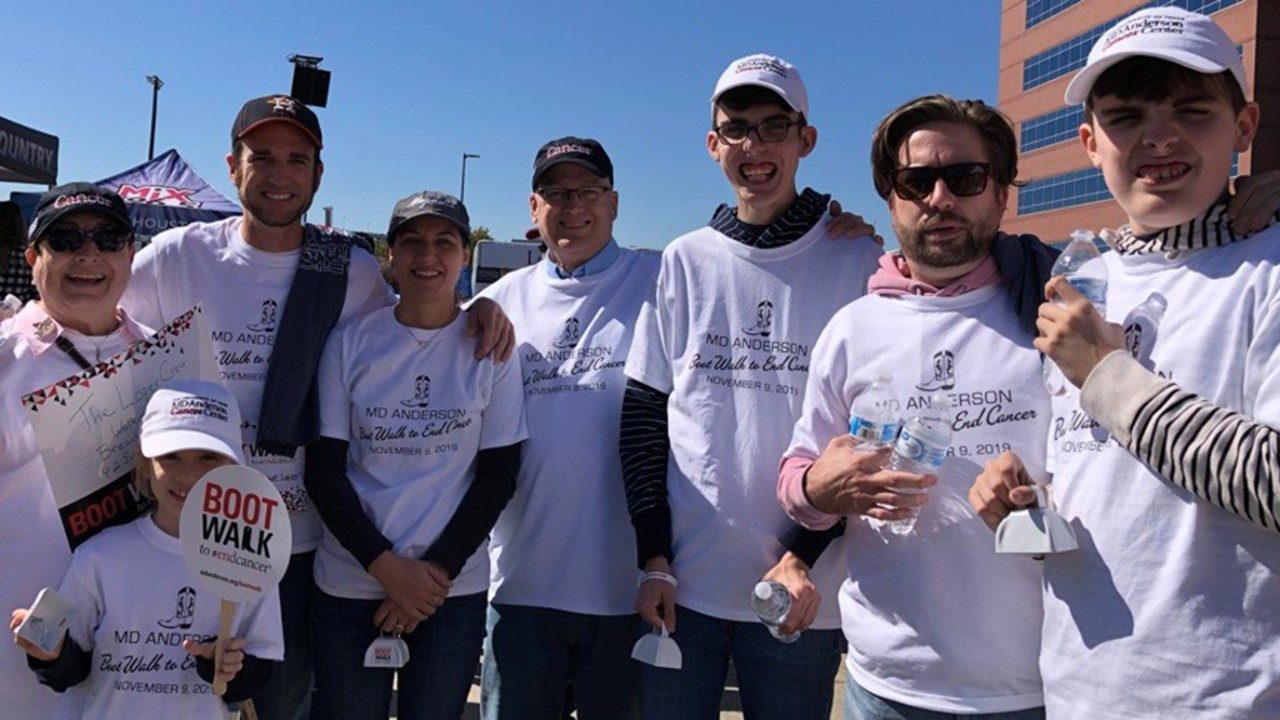Need a punch biopsy? Here’s what to expect
As a dermatologist, I examine skin all day, every day. If I see something concerning on your skin, I may perform a punch biopsy to learn more about it. A punch biopsy is a minimally invasive procedure that takes a sample of your skin to check for signs of disease.
Here, I’ll answer common questions about punch biopsies.
How to deal with changes in your appearance due to cancer treatment
Need a punch biopsy? Here’s what to expect
Breast cancer survivor-volunteer and colorectal cancer patient share unique friendship
7 bird flu questions, answered
Why is it harder to lose weight as you get older?
|
Healthy Living
|
|---|
|
Diagnosis & Treatment
|
|
Healthy Living
|
|
Diagnosis & Treatment
|
|
Healthy Living
|
Find stories by topic
Find out everything you need to know to navigate a cancer diagnosis and treatment from MD Anderson’s experts.
Need a punch biopsy? Here’s what to expect
March 12, 2025
Thyroid biopsy: Purpose, process and recovery
March 04, 2025
Bronchoscopy 101: How it helps diagnose and treat lung conditions
February 25, 2025
What is a lobectomy?
February 21, 2025
Senior speech pathologist: Patients are my No. 1 priority
February 19, 2025
Motivated to do more for pediatric patients
February 18, 2025
Read inspiring stories from patients and caregivers – and get their advice to help you or a loved one through cancer.
Music to a mother’s ears: Awake craniotomies bring musicians together
February 24, 2025
Art Space volunteer draws inspiration from young friend
January 31, 2025
Cancer survivor summits highest point in contiguous U.S.
January 22, 2025
Prostate cancer survivor excited to donate blood again
January 17, 2025
Get MD Anderson experts’ advice to help you stay healthy and reduce your risk of diseases like cancer.
7 bird flu questions, answered
March 07, 2025
Why is it harder to lose weight as you get older?
March 07, 2025
8 viruses that cause cancer
March 04, 2025
Is talc in makeup safe?
March 03, 2025
What is yoga therapy?
February 28, 2025
What’s the best diet for insulin resistance?
February 26, 2025
Infectious diseases specialist: 10 things to know about measles
February 25, 2025
Learn how MD Anderson researchers are advancing our understanding and treatment of cancer – and get to know the scientists behind this research.
How non-scientists are helping cancer researchers
February 21, 2025
4 questions with immunology researcher Susan Bullman
February 04, 2025
4 questions for mathematical oncologist Heiko Enderling, Ph.D.
January 28, 2025
Committed to making cervical cancer screening easier
January 08, 2025
11 new research advances from the past year
December 19, 2024
Finding hope for cancer patients in ferroptosis research
December 12, 2024
Advances in small cell lung cancer classification
November 25, 2024
Exploring pancreatic cancer vaccines: What’s next?
November 21, 2024
Read insights on the latest news and trending topics from MD Anderson experts, and see what drives us to end cancer.
How to take medications properly: 6 questions, answered
February 28, 2025
Clinical Ethics Fellow passionate about improving patient care
February 27, 2025
Senior speech pathologist: Patients are my No. 1 priority
February 19, 2025
Motivated to do more for pediatric patients
February 18, 2025
Leukemia nurse fulfills promise to her late mother
February 17, 2025
Dogs boost employee wellness and morale
February 12, 2025
Patient access representative supports patients, team during hurricane
December 20, 2024
Domestic violence and cancer treatment: 5 things to know
November 06, 2024
Find out what inspires our donors to give to MD Anderson, and learn how their generous support advances our mission to end cancer.
Three cancer survivors raise funds to support Colorado patients
October 03, 2024
Inflammatory breast cancer survivor finds hope at MD Anderson
October 24, 2023














































